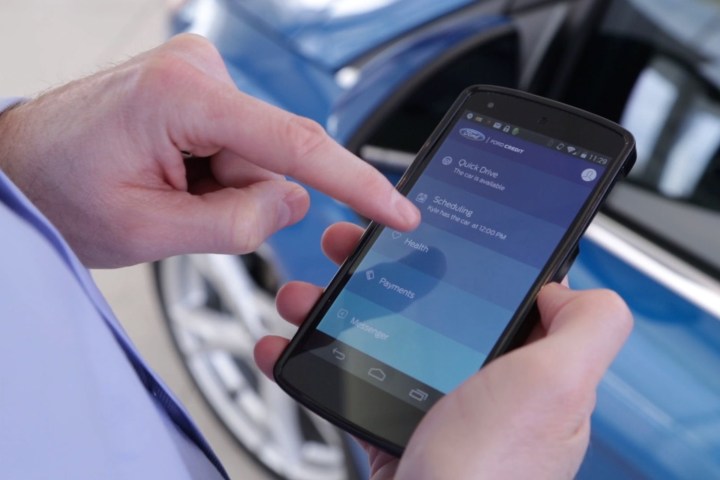
But it’s possible that carmakers will not only adapt to this change, but benefit from it. One potential strategy is to change the way vehicles are sold, and at the 2016 Detroit Auto Show, Ford unveiled two new programs aiming to do just that. They include a group-leasing pilot program for the main Ford brand, and a mileage-management pilot for Lincoln.
Set to begin next month in Austin, Texas, the Ford Credit Link pilot program will allow groups of customers to lease a car together. Groups of three to six people will able to sign up together for 24-month leases through three Austin-area dealerships, and then divide use of the car among themselves.
An onboard device and smartphone app will be used to coordinate everything. Through the app, members of these Ford collectives will be able to reserve drive time, communicate with each other, and check the status of an account or vehicle. Audi launched a similar program in Sweden in 2014. Called Audi Unite, it bundles all associated costs, including fuel and maintenance, into a monthly fee split among group members.
Both carmakers chose their respective locales because of perceived progressive attitudes. Ford and Audi need customers willing to try something new, and urban dwellers in particular are expected to be more receptive to an alternative to car ownership. Owning a car in a city is pretty inconvenient after all, and often unnecessary given the availability of public transportation.
Meanwhile, Lincoln is in the process of launching a leasing pilot program of its own. The Lincoln Miles program will give current lease customers credits of $100 to $1,000 for unused miles, which can be applied to new cars. Participants will be able to track their current mileage and see end-of-lease mileage estimates. It’s part of an effort by Lincoln’s finance arm to gather data on leasing habits; the carmaker believes adding more flexibility to lease contracts will make customers happier.
Editors' Recommendations
- Goliath car screens have arrived, and Ford’s new software takes full advantage
- Ford and VW close down Argo AI autonomous car unit
- Volkswagen’s electric ID.Life concept car doubles as a gaming console
- Samsung Galaxy S21 will be a digital key for Audi, BMW, Ford, Genesis cars
- Ford reveals the vehicle destined for its autonomous-car services


